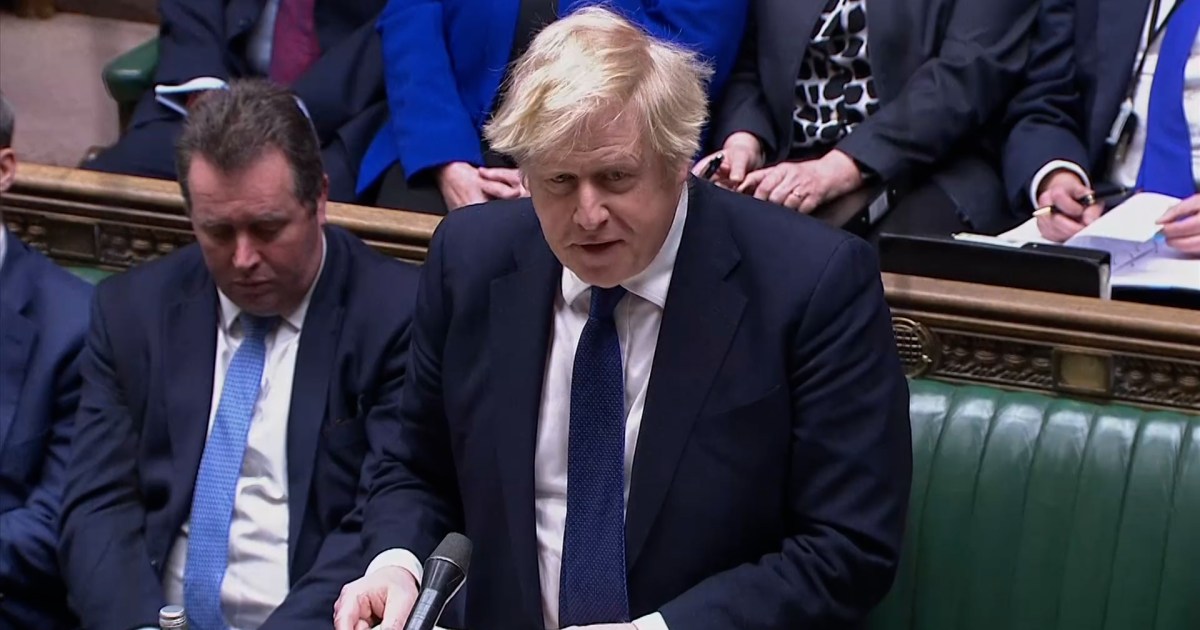From closing the airspace and freezing the assets of individuals or companies, to reconsidering financial or commercial relations, Western countries have intensified, since the start of Russia’s war on Ukraine, their sanctions against President Vladimir Putin and his close associates, as well as the Russian economy.
the financial sector
It is a priority for Westerners in order to reduce the capabilities of war financing.
Washington, the European Union and other countries chose to target the Central Bank of Russia directly, and since Monday they have banned any dealings with its monetary institution and frozen its financial assets.
The result is that the ruble (the Russian currency) is constantly declining relative to the dollar.
The queues increased in front of the banks in an attempt to recover the dollars and the desire of depositors to limit their losses.
It dealt another severe blow to the Russian financial system by excluding the country's largest banks from the SWIFT global system of financial exchanges.
For its part, Britain targeted the Russian sovereign fund by including it on the list of entities subject to sanctions.
The same decision was taken by the European Union, which prevented Europeans from participating in projects financed by this fund.
After being hit by the sanctions, Russia's largest bank, Sberbank, announced on Wednesday its withdrawal from the European market.
Also, American credit card issuers Visa, MasterCard and American Express took measures to prevent Russian banks from using their networks, in implementation of the sanctions.
Transport
After the European Union, the United Kingdom and Canada, the United States will close its airspace to Russian aircraft, which further tightens the screws on the Russian airline, Aeroflot, which was previously forced to suspend a number of its flights.
In response, Moscow prevented the airlines of the concerned countries from flying in its airspace, and forced - especially European companies - to change their flights' destinations to Asia.
Also, the entire Russian aviation industry was targeted.
The European Union and Canada have banned the export of aircraft, spare parts and equipment for the aerospace and aerospace industry to Russia.
Sanctions did not exclude the field of maritime transport.
The United Kingdom has closed all its ports to ships flying the Russian flag, as well as those owned or chartered by Russians.
Shipping companies Maersk, CMA CGM, Hapag, Lloyd and MSC announced the suspension of their activities towards Russian ports.
energy
The Russian giant Gazprom has become one of the companies that has been forbidden to invest money in Western financial markets.
In another symbolic decision, work on the "Nord Stream 2" gas pipeline, which would have increased shipments of Russian gas to Germany, was suspended.
But targeting the Russian energy sector is not easy for Western countries, especially since the Europeans rely heavily on Russian gas.
Industry
Japan announced on Friday sanctions that include the export of semiconductors and other components to "Russian military-related enterprises", without elaborating on the details.
This decision is significant because Japan, along with South Korea and Taiwan, is one of the largest producers of these electronic components that are indispensable for a wide range of industrial productions.
In the same context, the United States announced restrictions on Moscow's use of its technologies in various fields, including electronic chips manufactured by Nvidia, Intel and Qualcomm, the largest suppliers in this field.
The media
The European Union decided on Tuesday to ban the Russian state-run channels RT and Sputnik from broadcasting on its territory, regardless of the broadcasting medium.
Meta's Facebook network and Google's YouTube network decided to ban the two channels from publishing content in Europe.
In the same context, Google announced that the Russian state-funded media will no longer be able to invest money on its platforms.
individuals
Several Russian figures had previously been targeted by European and US sanctions following the 2014 annexation of Crimea, but the scope of these sanctions expanded to include a larger number of Russian politicians, led by Putin himself, his Prime Minister Mikhail Mishustin, and his Foreign Minister Sergey Lavrov.
On Thursday, the European Union announced the targeting of 23 "first-class" personalities, in addition to 351 members of the State Duma (the Russian parliament), before adding to them on Friday, Putin and Lavrov.
The United Kingdom also took a similar decision against them and many Russian financiers, including Roman Abramovich, owner of Chelsea Football Club.
These sanctions include preventing the individuals concerned from going to European countries, and freezing their assets there.
The United States, Canada, Switzerland and Australia have taken similar measures, but the list of individuals involved can vary from country to country, with the exception of circles close to Putin.

